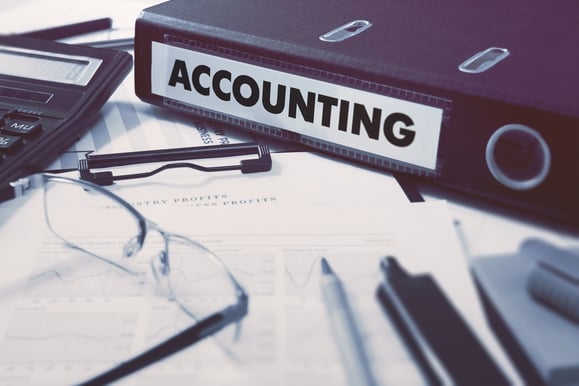The Importance of Financial Record Keeping for Business Success

Maintaining accurate and organized financial records is critical to successful financial planning when managing business accounts. Proper record-keeping helps you make informed decisions, track your financial progress, and meet legal requirements. This practice ensures that you have a clear picture of the company's financial health, allowing you to plan effectively for the future.
In this article, we'll explore why proper record-keeping is essential for financial planning, how it can help you stay on top of your finances, and practical ways to organize your records for maximum efficiency.
1. Understanding the Importance of Financial Record-Keeping
Financial planning relies heavily on the accuracy and availability of records. Tracking income, expenses, investments, and liabilities without proper documentation becomes difficult, leading to gaps in your financial understanding. This can result in missed opportunities, financial mismanagement, and even legal trouble in the case of audits or disputes.
Here are some reasons why proper financial record-keeping is essential:
- Better Budgeting: Organized records help you identify spending patterns and make realistic budgets. When you know exactly where your money is going, you can adjust your budget to improve savings and reduce unnecessary expenses.
- Tax Preparation: Proper records ensure you have all the necessary documents for tax season. This includes receipts, income statements, deductions, and other financial documents. It also minimizes the risk of errors in your tax filings, which can lead to audits or penalties.
- Financial Planning: Having a clear view of your financial history allows you to plan for the future more accurately. Whether you’re saving for retirement, planning a large purchase, or investing, knowing where you stand financially is crucial.
A well-organized document management system can greatly simplify this process, especially for individuals and businesses managing multiple accounts or large amounts of financial information.
2. How Poor Record-Keeping Can Affect Your Financial Health

Failing to maintain proper financial records can have serious consequences. It can make it challenging to manage day-to-day finances, hinder long-term financial planning, and expose you to legal and regulatory risks.
Some of the common issues that arise from poor financial record-keeping include:
- Missed Deadlines: Without proper documentation, it's easy to miss important financial deadlines, such as tax payments, bill payments, or loan installments. This can lead to late fees, penalties, or a damaged credit score.
- Inaccurate Financial Decisions: Incomplete or inaccurate records can cause you to make financial decisions based on incorrect information. This might lead to overspending, overestimating your financial capacity, or underfunding important savings goals.
- Difficulty in Audits: If your financial records are incomplete or disorganized, you may face difficulties during a tax audit or other financial review. Inaccurate records can lead to penalties, legal issues, and a loss of trust with financial institutions.
By implementing a proper record-keeping system, you can avoid these pitfalls and ensure that your financial health remains strong.
3. Benefits of Using a Document Management System
A trust document management system can be invaluable for individuals or businesses managing complex finances. This system helps organize and store important financial documents securely, making them easier to access when needed.
Key Benefits:
- Centralized Storage: A document management system stores all your financial records in one place. This makes it easier to find and access documents related to your finances, such as tax forms, investment records, or loan agreements.
- Improved Organization: These systems categorize and organize documents based on type, date, or any other criteria you set, ensuring that nothing gets lost in the shuffle.
- Secure Access: document management systems offer advanced security features such as encryption and multi-factor authentication, ensuring that your sensitive financial information is protected.
- Collaboration: If you work with financial advisors, accountants, or other stakeholders, these systems allow you to share documents securely, streamlining collaboration and decision-making.
Investing in a document management system can help you stay organized, protect your financial records, and make informed decisions about your financial future.
4. Practical Tips for Keeping Financial Records Organized

Now that we’ve covered the importance of financial record-keeping, here are some practical tips to help you stay organized:
Categorize Your Records
Separate your records into different categories to make them easier to manage. Common categories include:
- Income: Pay stubs, tax forms, and any other earnings-related documents.
- Expenses: Bills, receipts, and other records related to day-to-day spending.
- Investments: Records of any stocks, bonds, mutual funds, or real estate holdings.
- Tax Documents: Tax returns, deductions, and other tax-related paperwork.
Go Digital
Whenever possible, digitize your financial records. Paper documents can be difficult to manage and prone to damage or loss. Digital records, on the other hand, can be backed up in the cloud, making them easy to access and much more secure.
Set a Routine
Establish a regular routine for organizing and updating your financial records. Set aside monthly time to file new documents, reconcile accounts, and review your budget. This habit will prevent financial documents from piling up and becoming unmanageable.
Use Financial Software
Many financial planning tools allow you to automate the organization of your records. These tools can categorize transactions, generate reports, and even sync with your bank accounts to provide a real-time view of your financial status.
Financial teams that have trouble coordinating their workflow can benefit from a project management software for accountants that helps coordinate tasks, client communications, and financial workflows efficiently, keeping teams on track and ensuring accurate results.
5. Long-Term Benefits of Proper Record-Keeping
Keeping accurate financial records helps you manage your day-to-day finances and has significant long-term benefits. These include:
- Preparedness for Major Life Events: Proper records help you plan for big life events such as buying a home, starting a business, or retiring. With a clear financial picture, you can plan with confidence and avoid unexpected financial roadblocks.
- Improved Investment Decisions: Organized financial records give you a clear view of your cash flow, liabilities, and assets, helping you make more informed investment decisions.
- Peace of Mind: Knowing that your financial records are in order can reduce stress and give you peace of mind, especially during tax season or when preparing for audits or major financial decisions.
In conclusion, proper record-keeping is not just an administrative task; it’s a key element of successful financial planning. By implementing systems, categorizing your records, and maintaining a regular routine, you can ensure that your financial health remains strong and your future is secure.